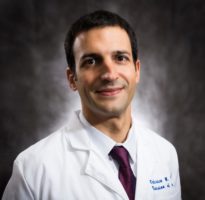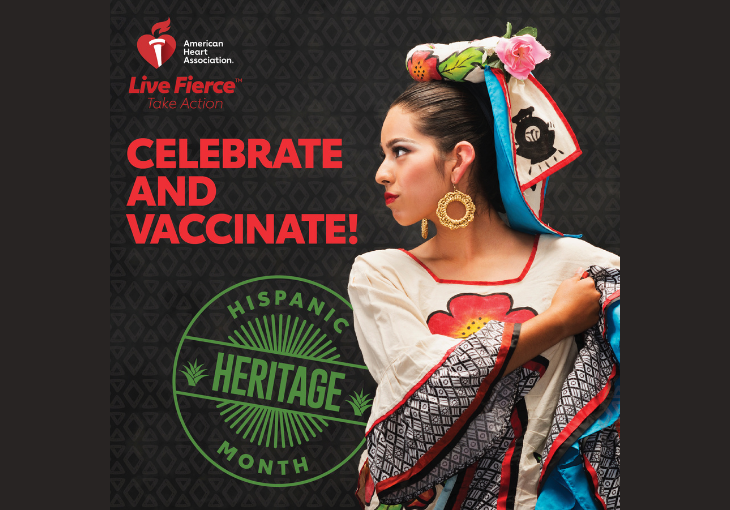The American Heart Association combats COVID-19 vaccine hesitancy and the prevalence of misinformation during Hispanic Heritage Month
Arlington, VA — The health, job safety and financial impact of COVID-19 has hit Hispanic Americans hard. In fact, Hispanic peoples are almost 2.5[1] times as likely to have died from COVID-19 than white/ non-Hispanic people, when age is taken into account. This disproportionate impact of the pandemic is shedding a new national light on the alarmingly low COVID-19 vaccination rate[2] remaining within the Hispanic community. As a champion for health equity, the American Heart Association, the leading global voluntary health organization dedicated to fighting heart disease and stroke for all, will launch the “Stay Fuerte for All” campaign. The campaign launch is timed in honor of Hispanic Heritage Month, to empower and inform the community in language and in culture about the importance of getting the COVID-19 vaccine. The lack of accurate Spanish-language resources about COVID-19 vaccinations has contributed to a prevalence of misinformation, adversely impacting communities of color at a greater rate[3].
The yearlong “Stay Fuerte for All” campaign is also designed to both equip and inspire community change agents to support efforts to reduce health disparities within the Latino community and help overcome barriers to some of the challenges they face, such as limited access to healthcare[4]. Many Latino people are at an increased risk for serious health complications – including a heart attack – due to the added stress caused by health, social and economic factors[5].

“’Stay Fuerte for All’ is designed to help Latinos overcoming the concerns and related reluctance of getting the COVID-19 vaccine,” Dr. Federico Asch, cardiologist at MedStar Washington Hospital Center and president of the American Heart Association, Greater Washington Region Board said. “COVID-19 vaccine misinformation continues to be widespread among the Hispanic community, but studies have shown the vaccines are safe and effective[6] for all adults. That includes people with existing medical conditions like heart disease as well as for people of color, all of whom were part of the large participant groups in the vigorous scientific research[7] conducted to test the vaccines.”
Studies show Latino, Black and Native American people and those living in rural areas are experiencing higher rates of COVID-19 and more severe complications, including heart issues and even death. A recent scientific study, published in the Journal of the American Heart Association, found that obesity, high blood pressure, diabetes and heart failure were four of the top risks for COVID-19 complications. People in historically under-resourced communities are more likely to have underlying health conditions[8] and are more likely to work essential jobs limiting their ability to socially distance[9] . In addition, they are less likely to have access to quality health care and may delay seeking care.
Through the “Stay Fuerte for All” campaign, the American Heart Association will continue to empower and inform thousands about health inequities. The Association previously announced plans to invest more than $230 million over the next four years to support targeted initiatives and programs. “Stay Fuerte for All” will be an additional effort focused on the Hispanic community to drive systemic public health change aimed at removing barriers to equitable health for everyone, everywhere.
To learn more about the campaign, visit empoweredtoserve.org/StayFuerte.
###
About the American Heart Association
The American Heart Association is devoted to saving people from heart disease and stroke – America’s No. 1 and No. 5 killers. We team with millions of volunteers to fund innovative research, fight for stronger public health policies, and provide lifesaving tools and information to prevent and treat these diseases. The Dallas-based association is the nation’s oldest and largest voluntary organization dedicated to fighting heart disease and stroke. To learn more or to get involved, call 1-800-AHA-USA1, visit heart.org or call any of our offices around the country.
For Media Inquiries:
Roxana Hoveyda: 216-374-5048; roxana.hoveyda@heart.org
